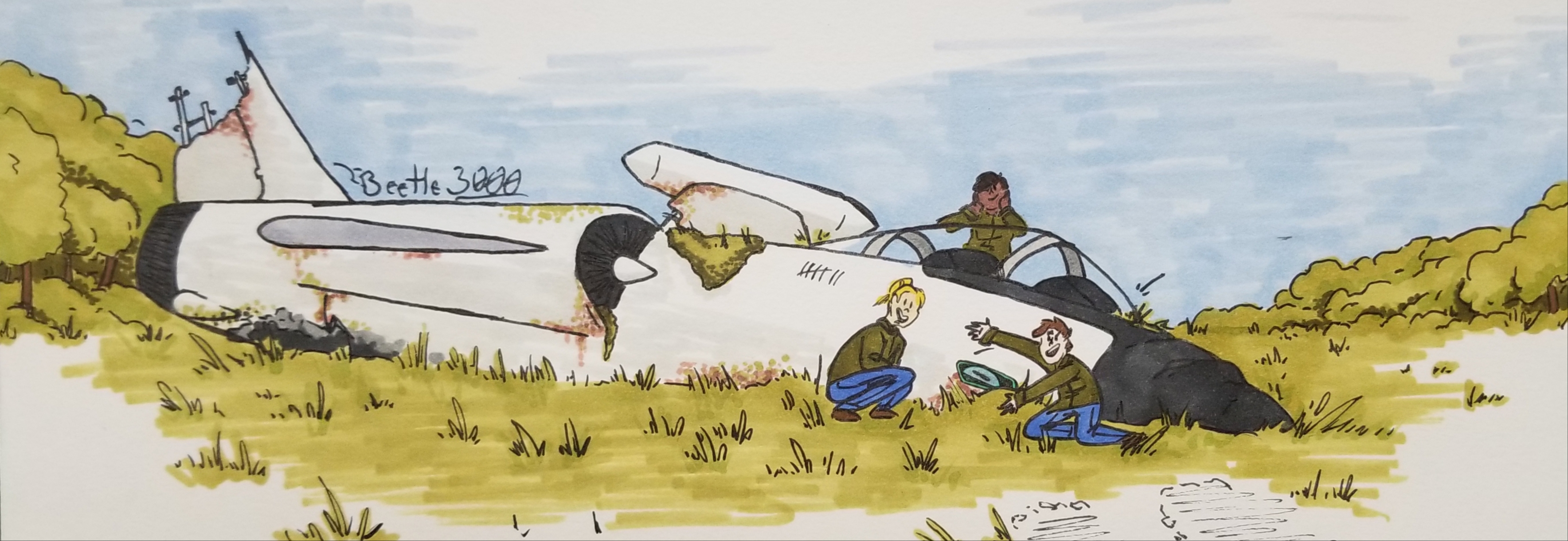MAI Post-War Search and Rescue
As awful as it sounds now, it was a life or death choice in battle to abandon your incapacitated armored friend. If a tank couldn't be repaired without too much risk to the rest of the crew, they were abandoned. If a plane was shot out of the sky, abandonment is a given, although it was much less common for them to survive that. Units were normally relocated and fixed a matter of days after the battle, but this wasn't always an option, especially so for Eastern units. This meant that many units sat where they were left behind until after the war. Who went out and dug them back up? MAI Post-War Search And Rescue, of course! ...Uh, let's abbreviate that to MAI SAR for convenience's sake.
Career
Qualifications
One didn't need much qualification to join MAI SAR, just know how to work with the equipment and don't be afraid to get your hands dirty. Even then, equipment wasn't much of a concern because this job was most relevant around the time AI operated machinery was taking its first steps. Don't know how to operate a crane? Don't stress it; either it already knows itself well enough to do that for you, or one of your LAI pals is remotely behind the wheel.
Career Progression
The job wasn't too complex, so it didn't need too many different positions; field workers were on top of actually going out and digging the units up, someone else had the reactivating equipment to wake the unit up, field managers tagged along to make sure everyone stayed on task, and there was at least one person with a tablet walking around so they could look up the unit's model for the sake of digging them out with minimal damage and finding their ID number.
Payment & Reimbursement
The pay wasn't stellar, but that wasn't the main motivation for taking the job, anyway. It wasn't full time so you could have a normal job front and center, and it was for the sake of the units sitting out in fields waiting to be picked up that most everyone joined. That, and it was a good first job for people just getting out of school or something.
Perception
Social Status
MAI SAR has the same public status as you'd expect of other SAR organizations, they're just out retrieving otherwise helpless individuals; that's respectable enough.
History
MAI SAR was spawned out of a necessity to, well, wake up all the MAI that got abandoned during the war. Founded in late 2001, no more than a few months after the end of the war, they worked towards their goal relentlessly, and it was for the most part achieved in only three years. Pretty short, right? Sudden lack of need to do more simply meant the end of the project, officially disbanded in 2004. Though the official profession has come and gone, some still take it upon themselves to go out and make sure there's no left over units that were never found, and thankfully so. Every once and a while, a new unawakened unit is recovered from their previously ever-increasing hibernation time.
High Turnover Rates
From what's been said so far, the job sounds pretty fine, right? Not the best pay, but a great cause; getting to help a ton of MAI who were never retrieved during the war. What wasn't so amazing, though, was the emotional toll that it took on many. The job had an unusually high turn-over rate compared to other post-war cleanup jobs because of how depressing it proved itself to be. Remember, MAI that were abandoned in battle have no idea what's happened to the world around them after their slips into hibernation, and many were abandoned in fear for their lives. This meant there was a fair share of MAI being activated and promptly being set into a panic, either not realizing the amount of time that had passed or that they'd been captured by the enemy, not knowing who anyone around them was. There were also units that, upon revival, would simply ask where their crews were, or be delighted to find that their crews came back to help them. Inevitably, the news of their situation had to be broken to them, and that usually resulted in more panic or breaking down into sobbing messes as they were being loaded onto trailers to General Military Restoration Facilities. Many, especially younger individuals, simply couldn't handle the second-hand stress as well as they'd thought when entering the job.
Alternative Names
MAI SAR
Type
Social Services
Demand
Though it was popular right after the end of the war, due to the objective, it became obsolete after about a decade. After all, there's only so many units sitting out there.




Comments